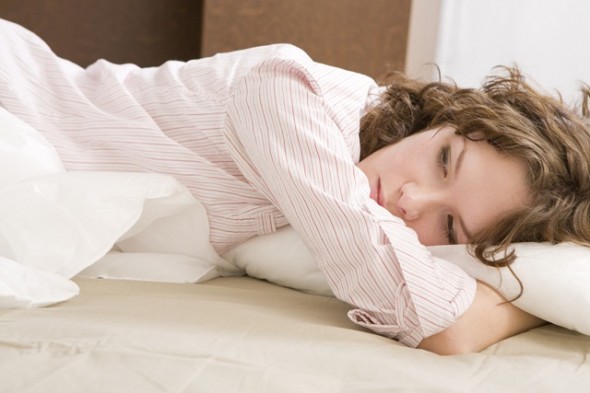Other than forgetting to floss, you might be doing something that severely damages your teeth every night: grinding your teeth. And you might not even know it.
Nearly 10 percent of adults and up to one-third of children grind or clench their teeth in their sleep (and sometimes unconsciously during the day too), a condition known as bruxism. In fact, according to the American Dental Association, more than 95 percent of us will grind our teeth at some point in our lives — but most of us will go undiagnosed.
The Dangers of Teeth Grinding
Teeth grinding can lead to poor sleep, headaches, earaches and jaw aches, as well as worn tooth enamel, making teeth highly sensitive or even fracturing them. It can also damage your jaw joints.
What causes this strange behavior? According the American Dental Association, bruxism can result from ongoing stress or an abnormal bite. Other suspects include obstructive sleep apnea, heavy alcohol use, caffeine, smoking and certain antidepressant drugs called selective serotonin reuptake inhibitors (SSRIs), such as Prozac, Zoloft, Celexa, Lexapro and Paxil.
Get Teeth Grinding Under Control
Most people don’t realize that they grind their teeth until their sleep partner tells them (it can be very noisy!) or they visit a dentist who can see the evidence. This is yet another reason that regular visits to your dentist are so essential.
If you suspect you’re grinding your teeth at night, visit your dentist ASAP. She can assess the damage, help you figure out the causes and come up with a treatment plan. She might suggest one or more of the following:
- Relaxation exercises: Could psychological stress be a possible cause of teeth grinding? Then meditation, breathing exercises or applying a warm, wet washcloth to the side of your face might help. In more serious cases, counseling or hypnosis might be called for.
- A dental splint or mouth guard: These clear dental appliances are worn on the upper or lower teeth to prevent teeth grinding at night and sometimes during the day. The most effective — and most comfortable ones — are those custom-fitted by your dentist. Experts advise against buying mouth guards on the Internet or at a drugstore without your dentist’s input.
- Medication: Muscle relaxants and certain non-SSRI antidepressants might also help. If you are taking a SSRI antidepressant, your doctor might suggest decreasing the dosage or changing medications.
- Botox: Yes, the same stuff that can relax wrinkles on your forehead can also relax your jaw and stop you from clenching and grinding. According to a recent study published in the American Journal of Physical Medicine and Rehabilitation, a double-blind, randomized clinical trial found that bruxism decreased “significantly” in the group that got Botox. The effects last several months.
Have you ever had any problems with grinding your teeth at night? Talk about it below.
About Author: Nancy Kalish is a certified health coach, and an editor and writer with more than 20 years of experience. She has covered health, nutrition and oral health for Prevention, Health, SELF, Real Simple, The New York Times, Completely You and more.

Sylvia Browder is CEO of Specialty Home Services LLC, a Home Improvement Company; a Small Business Consultant at Browder Consulting Group, a startup consultancy firm to help women with startup assistance, marketing, website and graphic design work and other support services. In addition, she has co-authored several published books; publisher of ‘Sylvia Browder’s Blog for Women Entrepreneurs’ a lifestyle blog; and publisher of ShopSpendBlack.com Business Directory & Blog platform created to help consumers find black owned businesses in a searchable format. In her spare time, she enjoys spending time with her husband of 30 years; 5 adult children and 5 grandchildren; church; friends and motorcycle riding.


















Dental work is something that all people will have to face throughout their lifetimes. Dentistry is the branch of medicine that encompasses the oral cavity, and the treatments and prevention of the diseases that afflict it. Dentists are the doctors who perform this type of medicine and they are highly specialized medical professionals, so dentist marketing can be quite a competitive field.
Thanks so much for your comments.